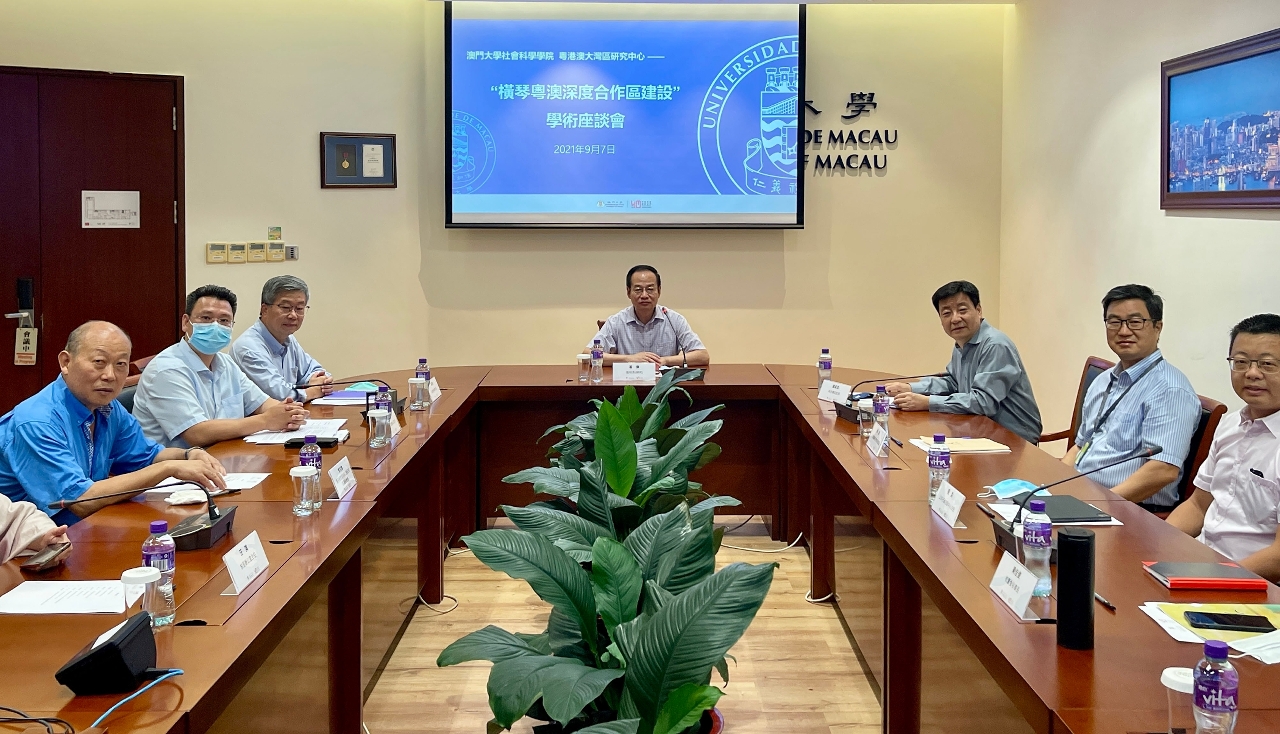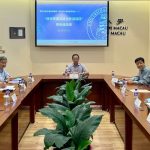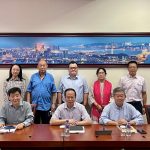 UM holds a seminar on the development of the Guangdong-Macao Intensive Cooperation Zone in Hengqin
UM holds a seminar on the development of the Guangdong-Macao Intensive Cooperation Zone in Hengqin
The Centre for the Guangdong-Hong Kong-Macao Greater Bay Area Studies under the University of Macau (UM) Faculty of Social Sciences today (7 September) held a seminar on the Master Plan of the Development of the Guangdong-Macao Intensive Cooperation Zone in Hengqin. Participants discussed the Master Plan from different perspectives, sharing their interpretations of the document and proposing suggestions for the development of the cooperation zone.
Participants unanimously agreed that the development of the cooperation zone is an innovative implementation of the ‘One Country, Two Systems’ policy with distinctive local characteristics. They expressed approval of the Master Plan, feelings of encouragement over the new opportunities for Macao brought by the cooperation zone, and confidence about the positive role UM could play in the process.
UM has developed rapidly in recent years. It is now one of the best universities in the west of the Greater Bay Area and the only university in Macao to have a campus in Hengqin. Seminar participants agreed that UM’s Hengqin campus is a successful example of the ‘One Country, Two Systems’ policy; it proves that with more space, Macao can achieve better development through a more innovative system. Participants said that the university must play a leadership role in innovative research, talent development, and think tank services, so as to promote the diversification of Macao’s economy and the development of the cooperation zone.
Participants shared their interpretations of the Master Plan from different perspectives. In terms of the overall content of the Master Plan, some said that the document revolves around promoting the diversification of Macao’s economy, clearly identifies development goals and strategic positioning, proposes an innovative mechanism for joint management of the cooperation zone, and promises extensive preferential policies for Macao. In terms of technology and innovation, some said that the Master Plan puts the R&D and high-end manufacturing industry at the top of the four major industries, while the Chinese medicine industry is one of the signature industries in Macao, with enormous potential. Some said that the key industries identified in the Master Plan to be given priority overlap with the key research areas listed in UM’s strategic research blueprint, which creates favourable conditions for researchers in these fields. Participants believe that UM should continue to develop its industry-academia collaboration centre in Hengqin, and promote industry-academia collaboration and technology transfer in key research fields by tapping into the vast mainland market. In terms of laws and regulations, some said that applying Macao’s civil and commercial laws and regulations in the cooperation zone will create new opportunities for the city’s future development, which necessitates comparative legal studies. Some said that it is important to promote data-based legal studies and the training of ‘data officers’ with the aid of advanced technologies. Participants also expressed their views on a wide range of other related topics, such as how to carry out international collaboration in higher education in the cooperation zone, how to take advantage of the faster and more convenient immigration clearance, and how to ensure the mechanism for joint management of the cooperation zone serves its intended purposes. Participants unanimously agreed that the various policies mentioned in the Master Plan leave much room for interpretation and discussion, and the details of these policies are worth an in-depth study.
The seminar was chaired by UM’s Vice Rector (Research) Prof Ge Wei. Participating scholars include Prof Hu Weixing, dean of the Faculty of Social Sciences and director of the Centre for the Guangdong-Hong Kong-Macao Greater Bay Area Studies; Prof Xu Chengzhong, dean of the Faculty of Science and Technology; Prof Chen Xin, interim director of the Institute of Chinese Medical Sciences; Prof Li Zongjin, chair professor in the Institute of Applied Physics and Materials Engineering; Prof Shui Bing, director of the Public Administration Training Centre; Dr Leung Kai Chun, secretary-general of the University Council; Wong Kei, director of the Rector’s Office; and Dr Lao Chi Ngai, director of the Strategy and Planning Office.



